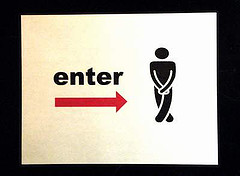Lap Band Procedure Shown to Eliminate Urinary Incontinence

For those struggling with obesity, one of the particularly frustrating but often unspoken side effects may be urinary incontinence. Studies have shown that this condition affects between 25-50% of those categorized as obese, and seems to affect women much more frequently then men. Yet bariatric surgeries such as the Lap Band procedure may be a successful treatment for this condition.
In a recent article by Community Health Network, three recent studies were discussed which showed a dramatic improvement in urinary continence difficulties among patients who had Lap Band procedures. These studies were performed around the world, and show a solid link between the Lap Band procedure and improvement or complete resolution of urinary incontinence.
Lap Band Offers Relief to Patients with Stress Incontinence
The most common form of urinary incontinence for obese patients is stress incontinence, in which the controlling valve on the urinary bladder weakens, making it more sensitive to pressure. This weakening is caused by increased pressure on the valve due to excess body weight. As a result, it may not be able to remain contracted during laughing, coughing or sneezing, which could cause incontinence.
While this weakening may often occur as an irreversible part of the aging process, for obese patients it may sometimes be reversed. Studies show that weight loss following bariatric surgeries decreases the amount of weight and pressure put on the bladder, giving it a chance to strengthen and become more functional.
The studies have also shown that complete resolution of symptoms is possible in many patients undergoing bariatric surgeries like Lap Band. One 500-member study showed that 97% of those struggling with incontinence prior to surgery had relief from their symptoms four months after the procedure. Another 200-person study showed that 82% of patients reported complete or significant improvement in their symptoms after four months and an average of 50 pounds of weight loss.
Photo by eloise mason on Flickr.
